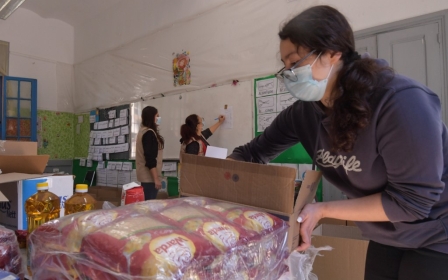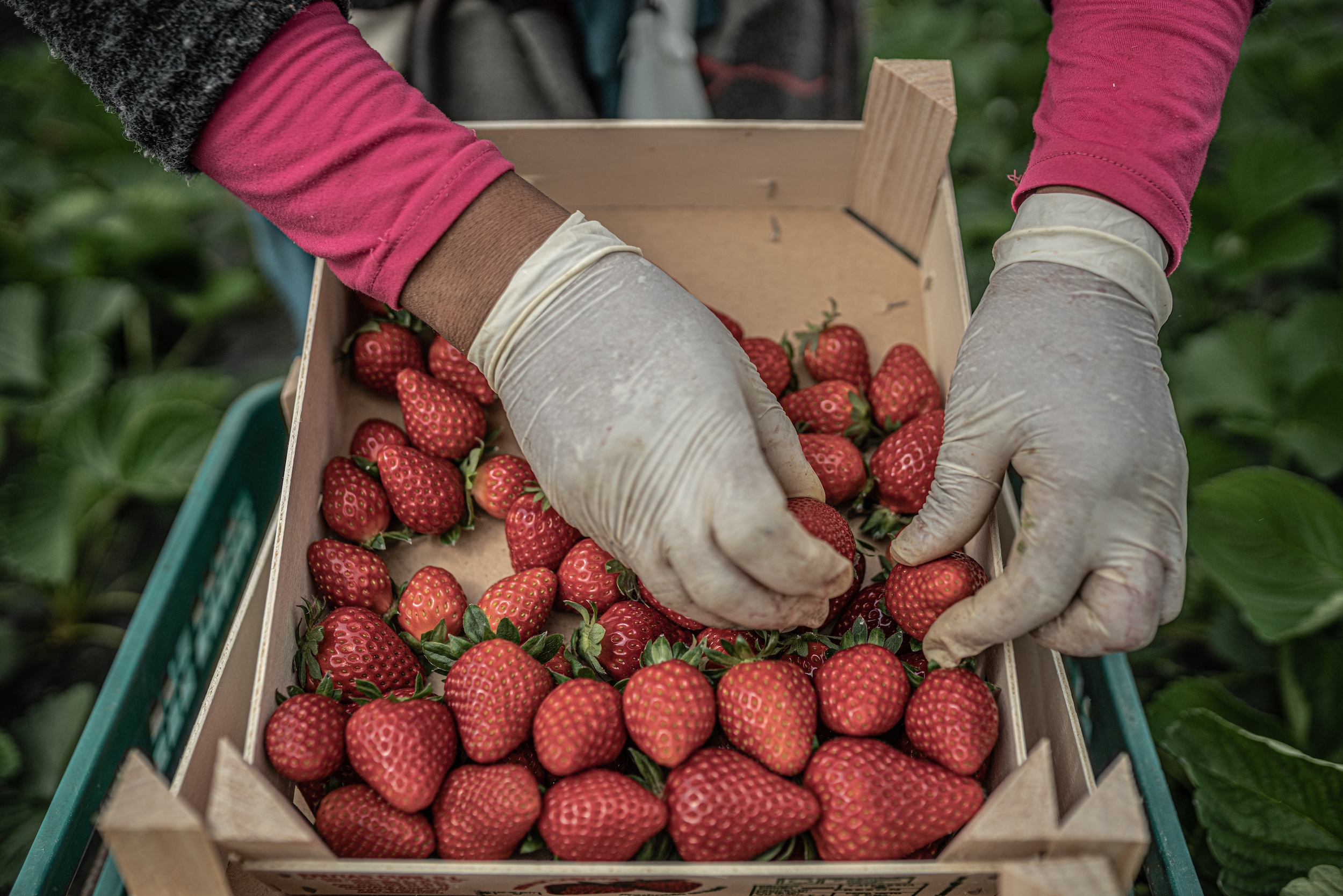
In pictures: Moroccans navigate abuse and coronavirus to pick Spain's 'red gold'
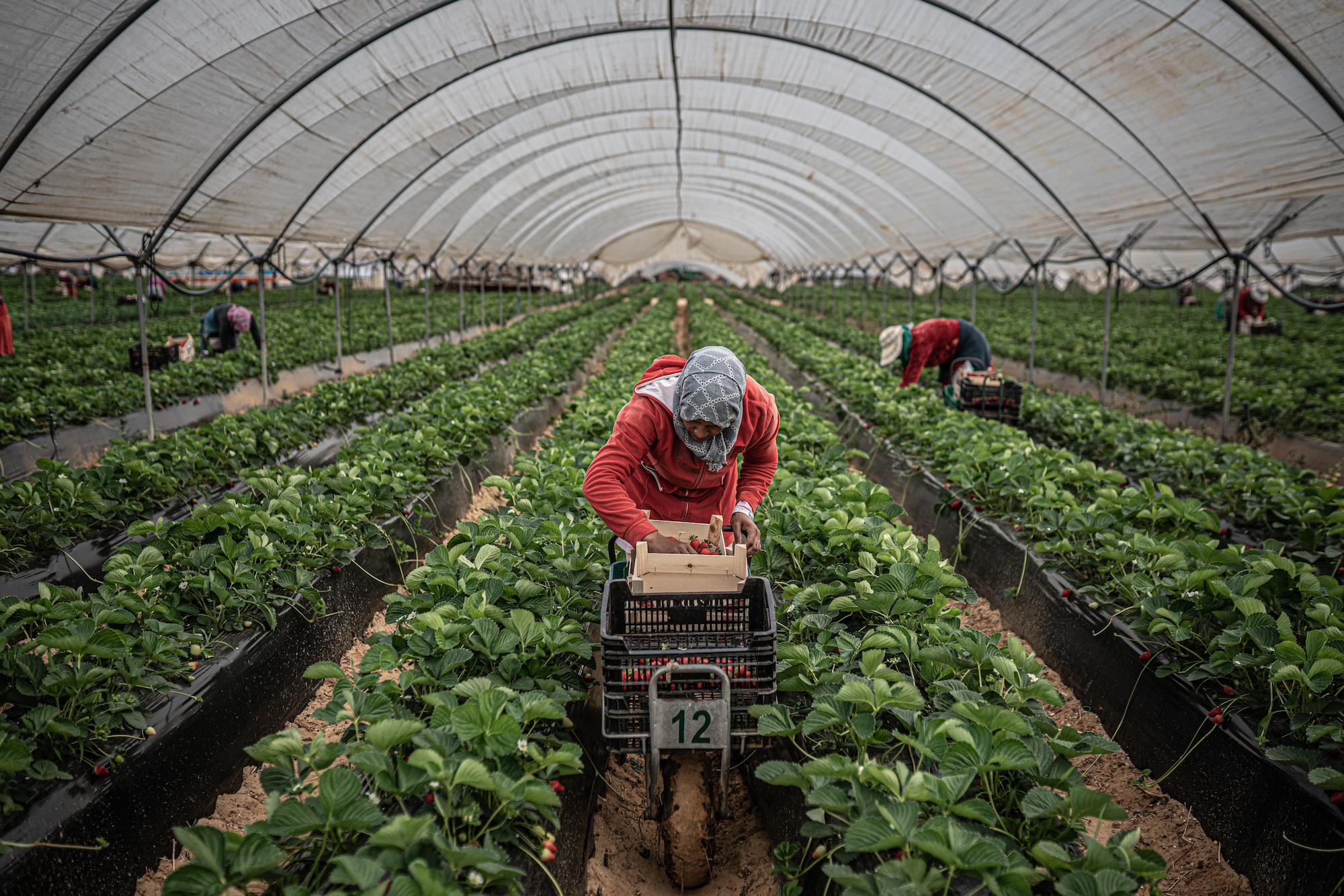
Every harvest season, thousands of Moroccan migrant workers, mostly women, arrive on the shores of southern Spain to work in the strawberry fields.
Picking the “red gold” in sunny Andalusia is a dream job for many women from the rural parts of Morocco, who usually live in poverty, have dependents and rely on agricultural work for survival.
While field workers in Morocco make approximately 73 dirhams (7 euros) per day, Spain's strawberry pickers can expect to earn about 42 euros for an eight-hour shift. (MEE/Pablo Tosco)
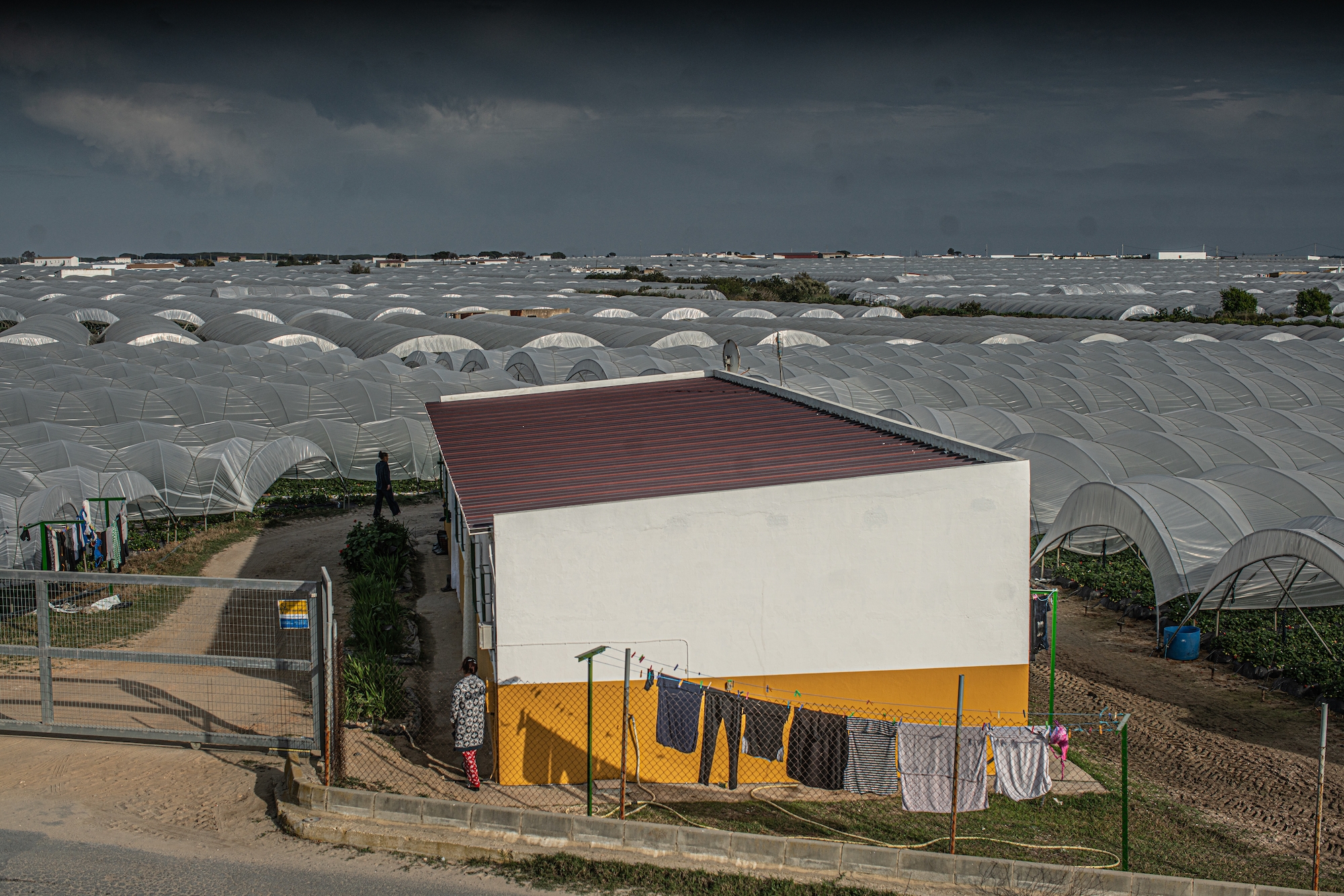
The Spanish province of Huelva is occupied by thousands of greenhouses dedicated to strawberry cultivation. The warm climate of this region of Andalusia favours the harvesting of strawberries from January to the beginning of summer.
The delicate fruits - which sell for around 3 euros per kilogram in Spanish supermarkets - are harvested by the hands of thousands of migrant workers, including between 14,000 and 19,000 temporary labourers from Morocco.
During harvest, workers often live in crowded huts on the farm and rarely get a glimpse of life beyond the strawberry fields. (MEE/Pablo Tosco)
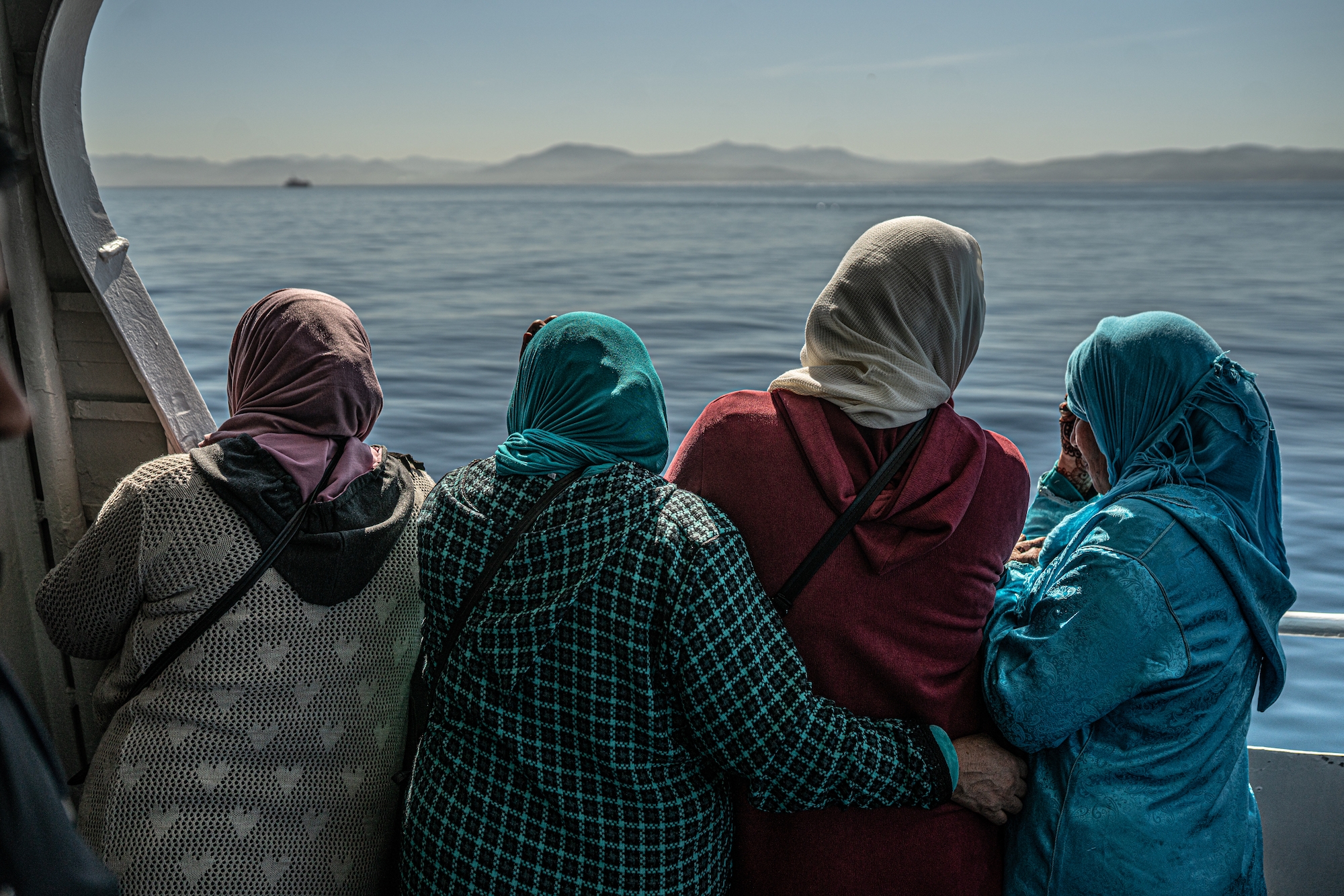
Despite allegations of workers’ exploitation and sexual abuse, thousands of Moroccan women are lured by the promise of better pay and are eager to cross the Strait of Gibraltar to work as strawberry pickers in Spain.
But this year, the coronavirus pandemic put a stop to many workers' plans.
On 25 March, in an effort to contain the outbreak of Covid-19, the government of Prime Minister Pedro Sánchez announced a hiring freeze on foreign workers and maintained border closure between Spain and Morocco.
The measures meant that only about 7,000 temporary workers from Morocco - out of the 19,000 who had secured visas and contracts - made it to Spanish shores. (MEE/Pablo Tosco)
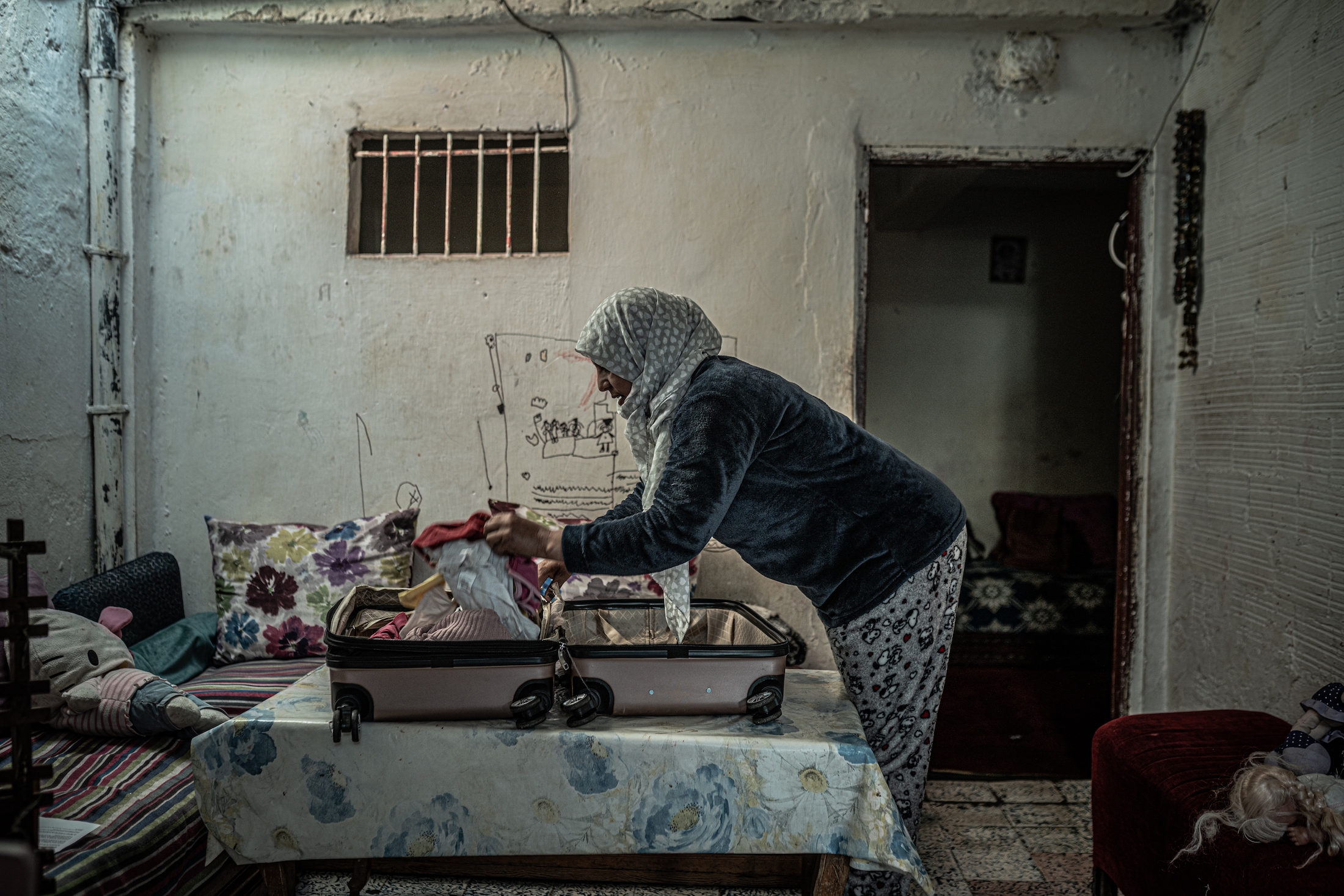
The situation left 11,000 Moroccan women without a job that they had already been hired for. Fatima, 44, is one of them.
Up until now, Fatima had been working sporadically without a contract in Moroccan agriculture, picking beans and lemons for 7 euros a day. This year, she decided to try her hands in the strawberry greenhouses of Huelva.
Back in March, when MEE visited Fatima in her home in the outskirts of Rabat, she was packing her belongings for the journey and feeling "very happy" about her first trip to Spain to work in the strawberry harvest.
"Now, I am locked up at home, without work and consuming what I bought before going to Huelva," Fatima, a divorced mother of three who had borrowed money to pay for her visa to Spain, told MEE over the phone. (MEE/Pablo Tosco)
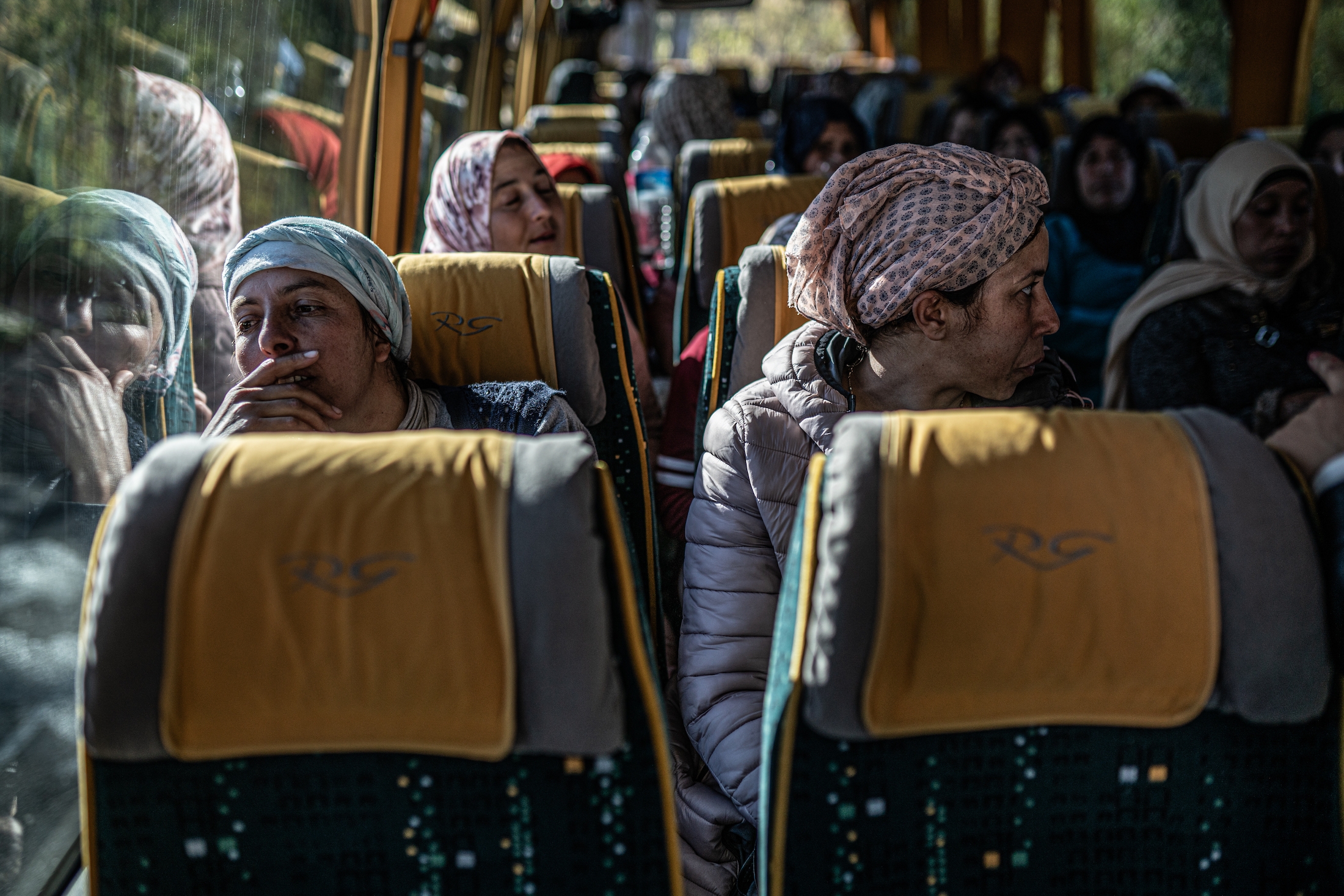
But life is not always sweeter on the other side, according to several Moroccan women who had had a taste of short-term employment in Spain.
In 2018, 10 Moroccan female temporary workers filed a complaint against the agricultural company Doñana 1998 S.L. for non-payment, poor working conditions, abuse and sexual assaults.
The account of their traumatic experience spread across social media and was widely reported by Spanish news organisations. When their testimony finally reached Morocco, many said they were shunned by their family.
These women now live in bitter exile, hiding in Spain and waiting for the trial to take place. (MEE/Pablo Tosco)
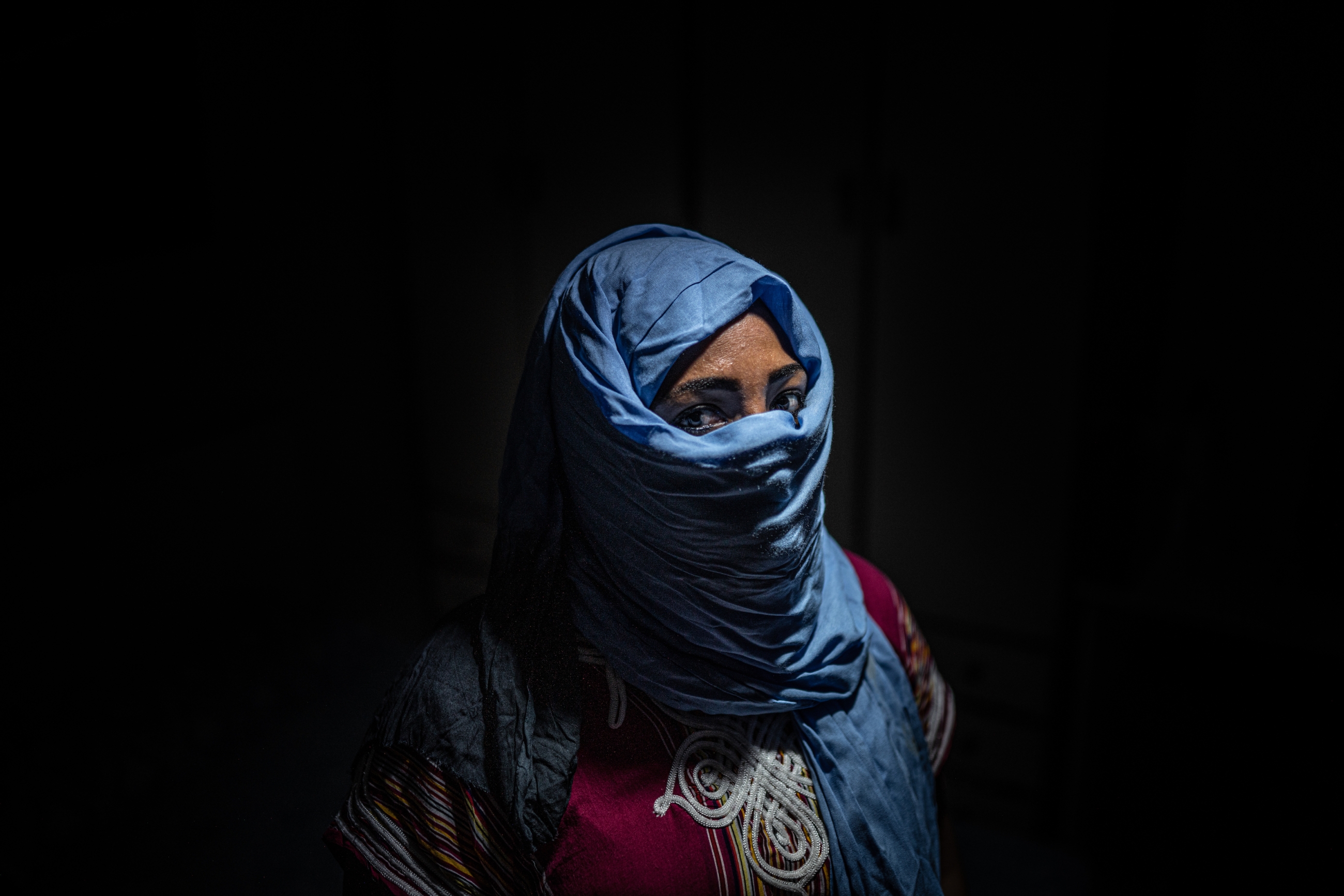
Aisha (not her real name) is one of the 10 Moroccan temporary workers who filed the complaint against Doñana 1998 S.L. in 2018. She now lives in hiding in the southeast of Spain.
She said a senior female employee in the company had offered them the possibility of earning more money doing "something" different.
"They told us that it was not necessary for us to work in the fields, that we could go with some men in exchange for money," Aisha said.
Given their vulnerable situation, some migrant women "accepted the money, became pregnant and had abortions", she said. (MEE/Pablo Tosco)
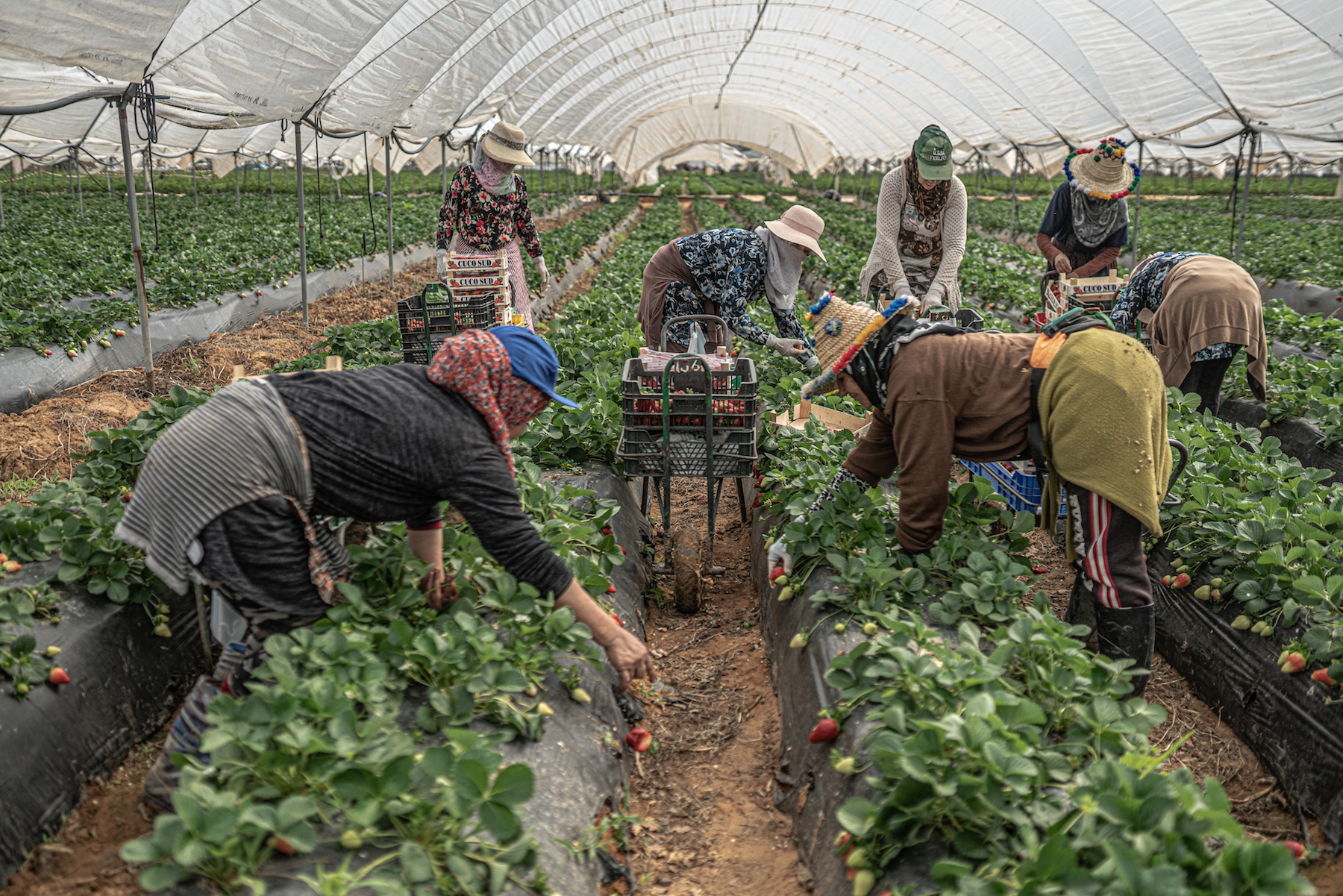
Moroccan women come to Spain's strawberry fields because they are poor, said José Antonio Brazo Regalado, representative of the Andalusian Workers’ Union in Huelva.
"During the three or four months that they usually spend in Huelva, they can save enough money to survive [back home for] the whole year, to feed their children and their family."
As one of the lowest-paid jobs in Spain, picking strawberries is not something that many Spaniards want to do, but the fruit continues to be the main economical pillar for the region, he said.
"That’s why they hire women from Morocco, because they can bear almost anything." (MEE/Pablo Tosco)
*The authors of this investigative report have been able to carry it out thanks to a grant from the European Union. The content of this document is the sole responsibility of Fundacio Surt and does not necessarily reflect the position of the European Union.
This article is available in French on Middle East Eye French edition.
Middle East Eye delivers independent and unrivalled coverage and analysis of the Middle East, North Africa and beyond. To learn more about republishing this content and the associated fees, please fill out this form. More about MEE can be found here.



